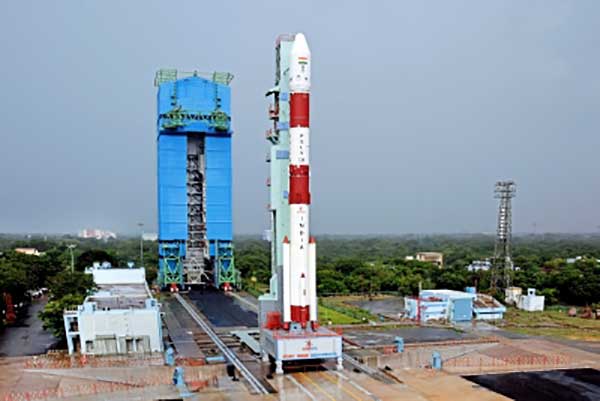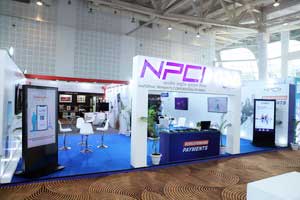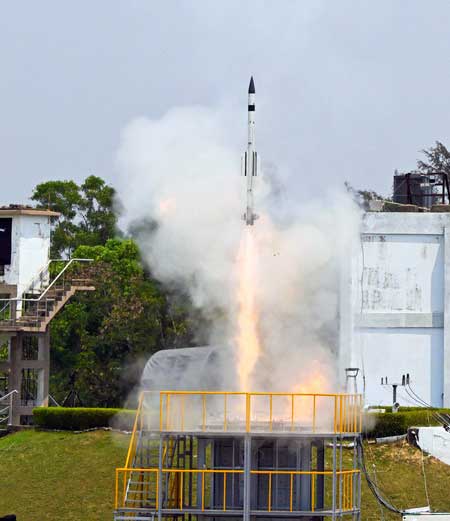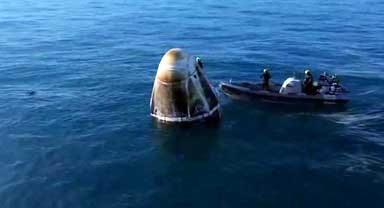India will send up its first second-generation navigation satellite on May 29 morning, using its Geosynchronous Satellite Launch Vehicle (GSLV) rocket, the Indian Space Research Organisation (ISRO) said on Monday.
For the first time, an indigenous atomic clock will be flown in the navigation satellite NVS-01.
According to the Indian space agency, the rocket GSLV-F12 carrying 2,232 kg NVS-01 navigation satellite is scheduled to lift off at 10.42 a.m. from the second launch pad in Sriharikota rocket port in Andhra Pradesh.
The rocket will deliver the satellite into a Geosynchronous Transfer Orbit (GTO) from where it will be further taken up by firing the onboard motors.
The ISRO said NVS-01 is the first of the second-generation satellites envisaged for the Navigation with Indian Constellation (NavIC) services.
NVS series of satellites will sustain and augment the NavIC with enhanced features.
This series incorporates L1 band signals additionally to widen the services.
The Indian space agency had used imported atomic clocks on all the nine navigation satellites it had launched earlier.
Each satellite had three atomic clocks.
It was said the NavIC satellites were performing well till the three clocks in IRNSS-1A -- the first satellite -- failed.
Sources in the ISRO had earlier told IANS some of the atomic clocks were not functioning properly. The clocks are used for precise time and location.
Simply put, the NavIC or formerly Indian Regional Navigation Satellite System (IRNSS) is similar to the GPS (Global Positioning System) of the US, Glonass of Russia and Galileo of Europe as well as China's Beidou.






NPCI to decide on person-to-merchant payments cap on UPI transactions: RBI
In order to further boost digital payments, the National Payments Corporation of India will be enabled to set the limit on person-to-merchants transactions via Unified Payments Interface (UPI), RBI Governor Sanjay Malhotra said on Wednesday.
New AI algorithm to predict risk of cardiovascular events, heart-related death
A team of researchers in South Korea has developed a novel artificial intelligence (AI)-based algorithm that uses electrocardiograph (ECG)2 data to predict the risk of cardiovascular events, and heart-related death.
India successfully flight-tests indigenously-developed vertically-launched Surface-to-Air Missile
In a boost to India's precision firepower, the Defence Research & Development Organisation (DRDO) and the Indian Navy conducted the successful flight-test of indigenously-developed Vertically-Launched Short-Range Surface-to-Air Missile (VLSRSAM) on Wednesday, an official statement said.
Unplanned welcome: Dolphins greet astronauts as they return home after extended space mission
Astronauts Sunita Williams and Butch Wilmore, along with NASA’s Nick Hague and Russian cosmonaut Aleksandr Gorbunov, have returned to Earth after a lengthy journey that turned a planned eight-day mission into a nine-month in space.
Stranded US astronauts return to Earth, after nine months in space
The SpaceX Dragon spacecraft carrying them and two other astronauts—Nick Hague and Russian cosmonaut Aleksandr Gorbunov—splashed down into the waters off the coast of Florida state just minutes before 6 p.m., as NASA had announced.
Google to acquire cloud security platform Wiz for $32 billion
Tech major Google on Tuesday announced to acquire Wiz, a leading cloud security platform headquartered in New York, for $32 billion in an all-cash transaction.
Ahead of Sunita William’s ‘homecoming’, PM Modi pens letter to India’s illustrious daughter
As the NASA astronauts Sunita Williams and Butch Wilmore begin their journey back home from space, after staying ‘stranded’ at the International Space Station (ISS) for about nine months, Prime Minister Narendra Modi has written a letter to one of India’s most illustrious daughters hoping for her safe return.
Sunita Williams set to return to Earth tomorrow
With the pair of US astronauts stranded for more than nine months on the International Space Station (ISS), the National Aeronautics and Space Administration (NASA) has confirmed that the duo will return to Earth on Tuesday evening.